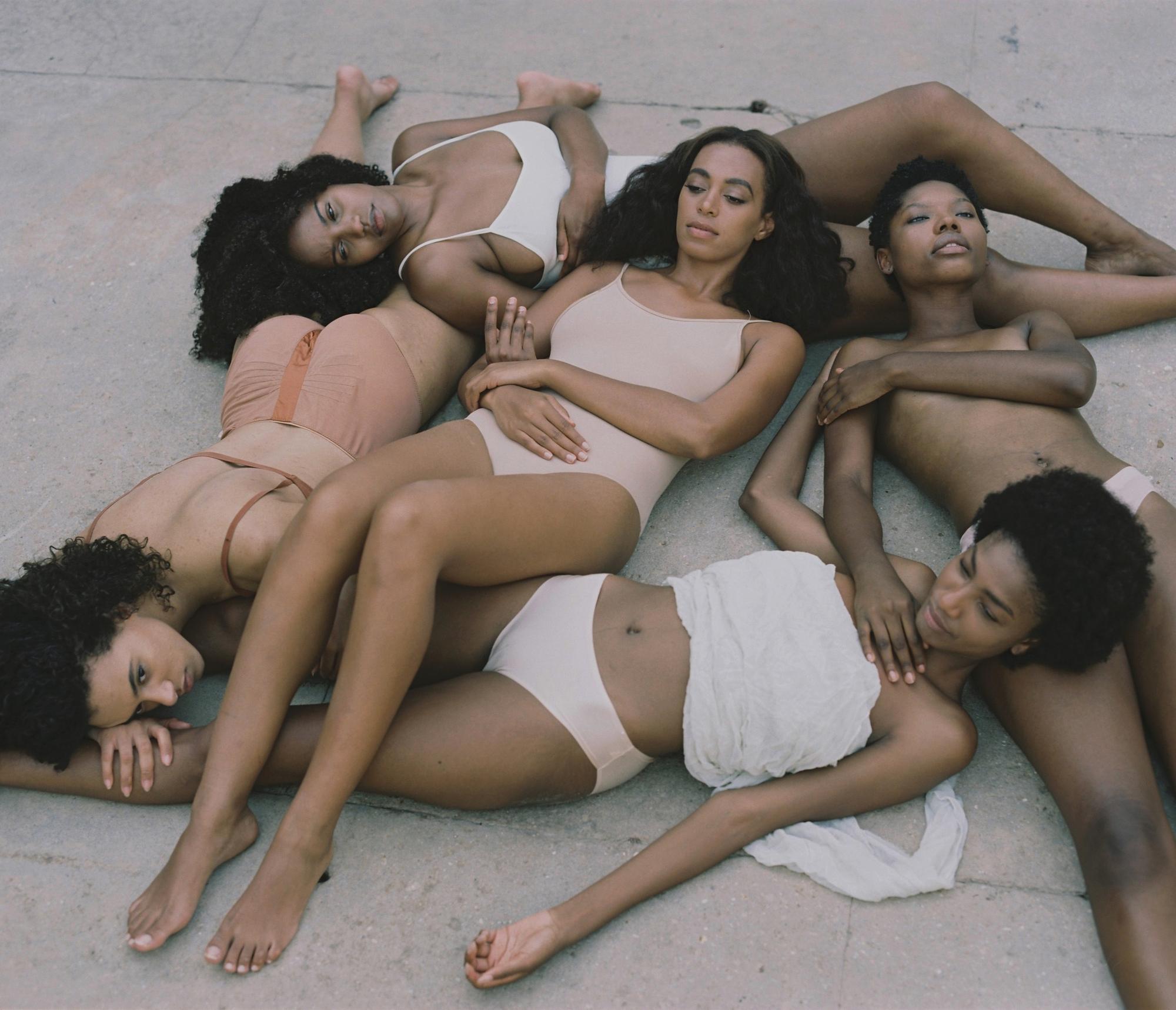Today marks the release of Solange’s hotly anticipated third full-length LP, A Seat at the Table. The album, Knowles’ first release since 2012’s True, includes collaborations ranging from Kelela to Lil Wayne, and cites Dirty Projectors’ Dave Longstreth and Majical Cloudz among its contributors. Its perceptive lyrics — which can be found in an accompanying 112-page digital book featuring photography by Carlota Guerrero — offer an expansive conversation on black identity and cultural ownership in 2016.
To commemorate the occasion, Solange sat down with her mother Mrs. Tina Lawson and journalist Judnick Mayard for a comprehensive unpacking of the record and the stories that became foundational to its conception. Some important moments of the interview include a reflection upon the high-fashion scrutinization of black hair that evolved into the Sampha-featured “Don’t Touch My Hair,” as well as the punk-inspired “F.U.B.U.” Peep a few highlights from their conversation below, and check out the full piece on Saint Heron’s website.
On “Don’t Touch My Hair”: “I think I’ve been on so many fashion shoots and anything in regards to fashion, which is still a predominantly white industry, and also feeling the void of tokenism through my hair being an afro and what that meant to the fashion world. There was a fashion editor of a major magazine who was white and for Halloween she wore an afro wig and had black face and called herself Solange. There was another magazine that composed celebrity-look-alikes, and they used a dog for me. They talked about my hair being like one of a dog, literally. So, hair just became so complex for me. I remember my mother came with me on a two-show run that I did, and all of the micro-aggressions of us traveling within those four days had me noting to her that whenever I would wear my hair straighter, I would typically have an easier time traveling. So, the song is as much as what it feels like to have your whole identity challenged on a daily basis.”
On “F.U.B.U.”: “I remember reflecting on the every day micro-aggresions that we experience on a daily and completely reconstructed the chorus, the track and freestyling that specific song. That song has resonated with so many people that have heard it because it is almost an allowance to just let it out…I thought of F.U.B.U. the brand, meaning ‘For Us By Us’, and what kind of power it had and how normalized it became to wear that kind of symbolism every day…when I think of “F.U.B.U.,” and the album as a whole, I think of punk music and how white kids were allowed to be completely disruptive, allowed to be anti-establishment, and express rage and anger. They were allowed to have the space to do all of that, even if it meant being violent or destroying property and that wasn’t exactly inclusive to us even if we created the groundwork for rock and roll. If we were inclusive and we were violent and destroying property and able to express that kind of rage, then it would not be allowed in the same way.”
On “Don’t You Wait”: “I was seeing R&B culture be treated like almost a costume party… I spoke up on something that did not feel right, and I was essentially told to shut up or there would be consequences. That’s what it meant to hear someone say ‘don’t bite the hand that feeds you’ in response to that… Originally, I started writing the song about that specifically and then I transitioned to writing it about whoever felt like I was biting the hand that fed me or whoever felt like they were the people who were buying my records and weren’t going to allow me that freedom to express myself.”
Credits
Photography Carlota Guerrero
